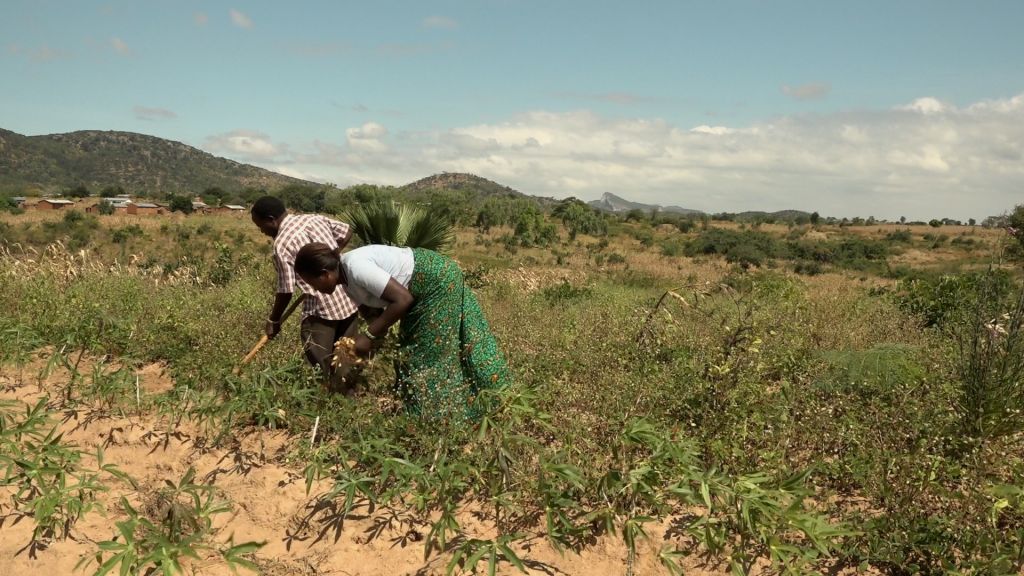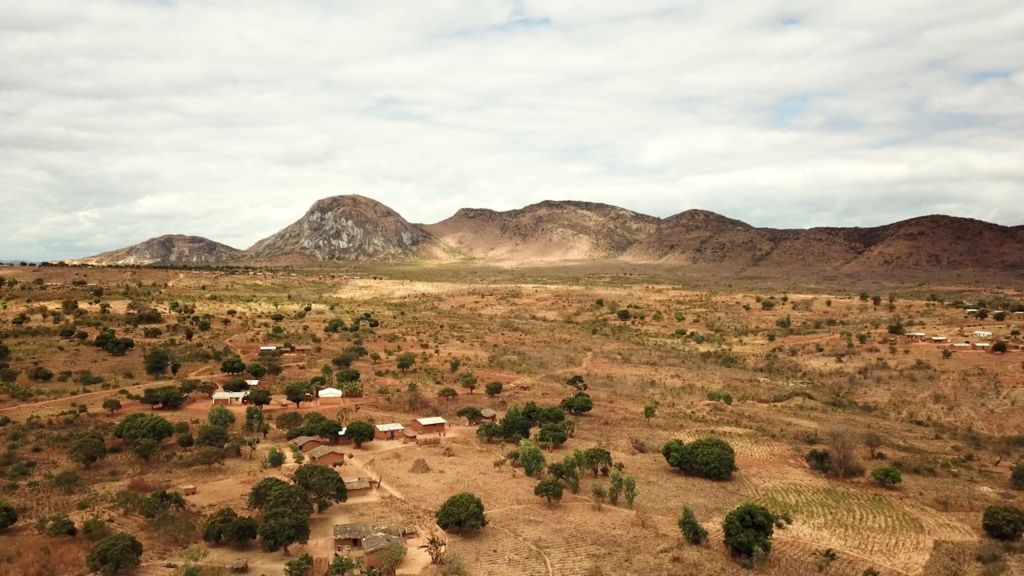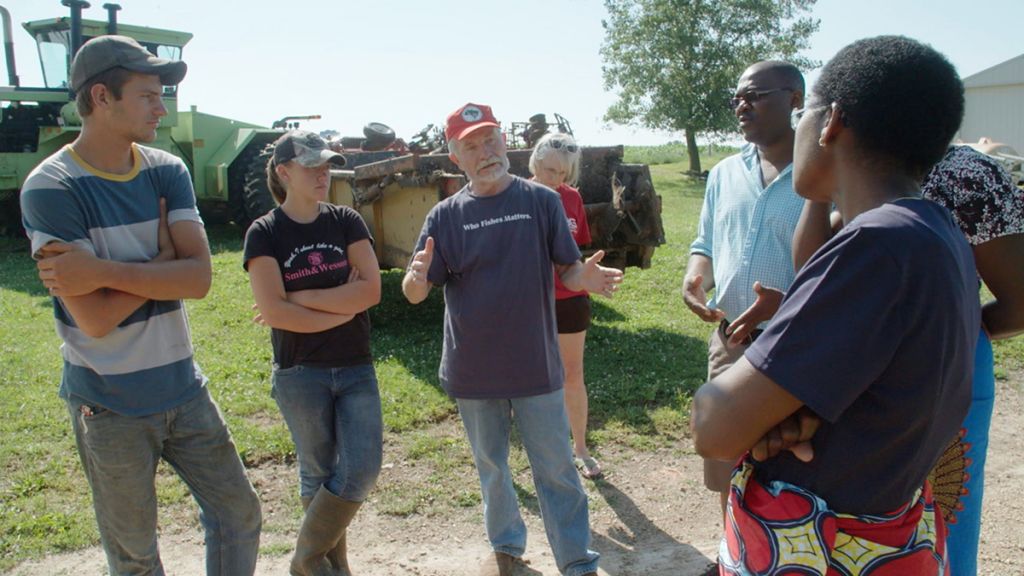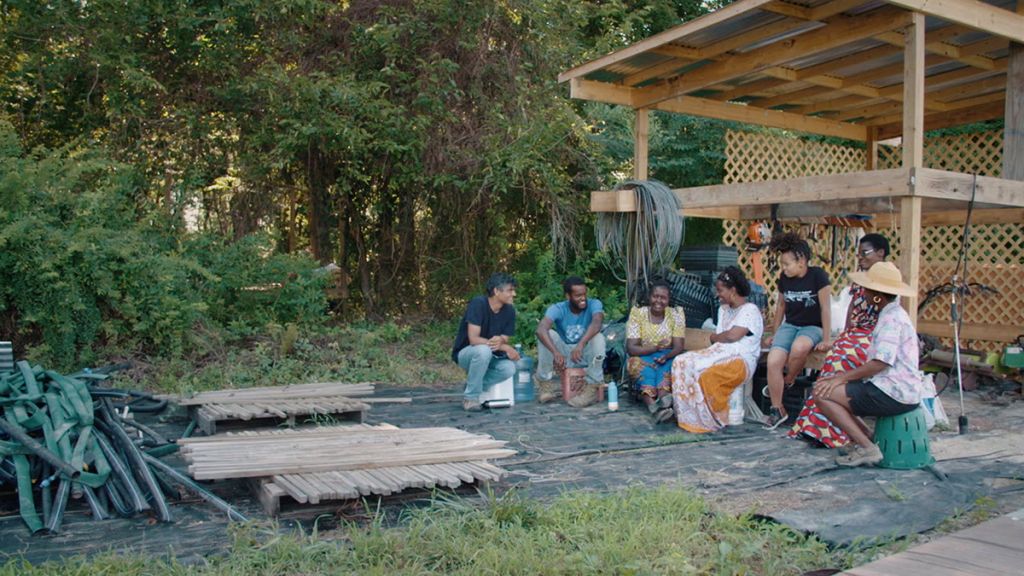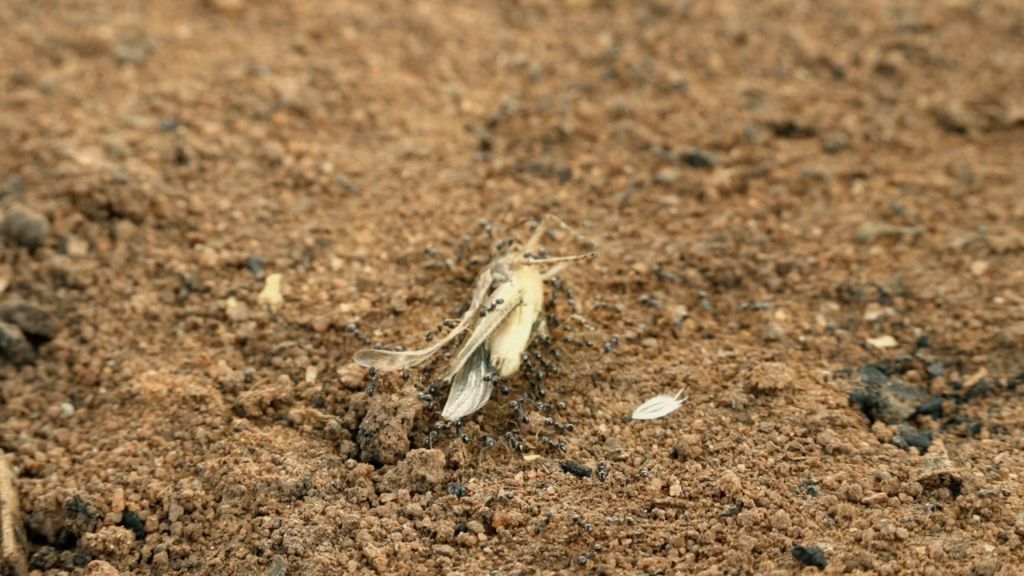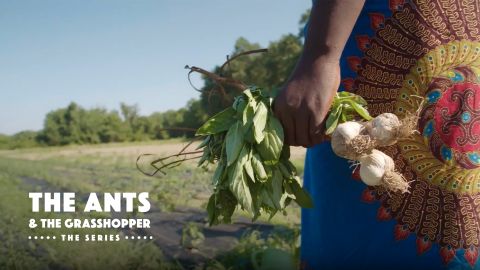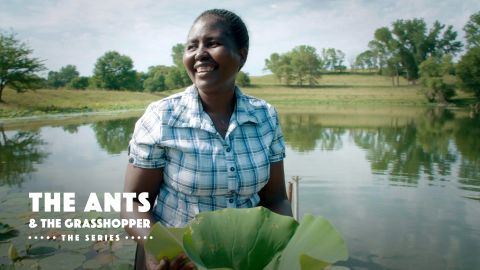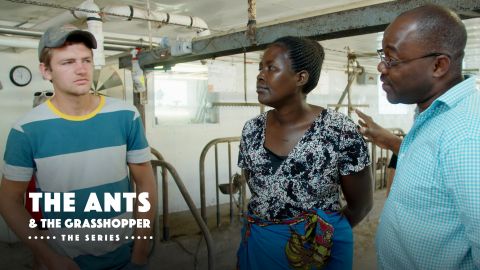A Climate Change Story Born of Frustration
By Raj Patel
The Ants & the Grasshopper is a feature documentary born of frustration. Because I’d written widely on the global food system, I often appeared as a talking head in other people’s films. In these films, you’d see ordinary people suffering from the depredations and deficiencies of the food system. I was interviewed to explain why the food system was so bad, which I was happy to do. But it would surely have been better to visit agricultural communities and ask the people on the front lines what they thought should be done about it. Documentaries ended with injunctions to “vote with your fork” or “write to your elected representative,” but never urged the viewer to seek out the concerns of farmers – the people that actually produce the food. My frustration finally turned to action when I got behind the camera and co-directed, with Zak Piper, a film that put front-line activists in the driver’s seat.
Initially, we filmed this story as a conventional documentary with the idea that it would be narrated by a Hollywood celebrity. In the editing room, I was providing some improvised narration, but it wasn’t working: I ended up sounding like a poor man’s David Attenborough. It became clear, a few years into what became a ten-year process for this film, that this wasn’t our story to tell. The story belonged to our lead character: Anita Chitaya. Her words give the film its title, based not on Aesop’s fable, but on Chitaya’s observation of ants in her village lifting and carrying objects far heavier than any individual could manage alone – by working together.
Anita is an activist, farmer and mother living in Bwabwa, a village of 500 people in northern Malawi – a landlocked country in the south of Africa where food insecurity rates remain agonizingly high. Anita works with Soils, Food and Healthy Communities, an organization that has fought hunger in Malawi for decades. Anita helps men and women to experiment with crops, grow more nutritious food, and cook together. In a society blighted by gender inequality, Anita and her organization are transforming not only the way people eat, but the way they work and live together – for the better.
Anita is an utterly compelling force. Through Soils, Food and Healthy Communities, she came to learn about climate change – and the fact that from 1850 to 2021, the U.S. was responsible for 20% of the total cumulative greenhouse gases in the atmosphere. Malawi’s share is too small even to register. Yet climate change is already having grave effects on Malawi, its crops affected by unpredictable rains, extreme weather, and new pests.
Upon learning how little is being done in the U.S. to address climate change, Anita was determined to visit the country and speak with those in authority. We did our best to secure interviews with decision-makers ranging from the Gates Foundation to Pepsi to the president of the United States. In the end, however, the only people who would talk to Anita were my friends and colleagues working in food and agriculture here. Even within this restricted group, Anita was able to meet people with a wide range of opinions and experiences of the food system – from climate skeptics to revolutionary urban farmers.
In The Ants & the Grasshopper: The Series we air in brief the concerns and issues covered in the full feature film, including gender, race, and climate change. By adapting the film to this format, we were able to include material omitted from the film, while also meeting Anita’s ambition to get this content in front of as many people as possible. People organize and learn in different ways. Anita understands this when she teaches about gender equality and farming. We honor her wisdom by making her work ready and available for organizers to use in any way they see fit, and to draw on the lessons that Anita shares: Everything is connected. You can’t end hunger without first addressing climate change, gender inequality, and poverty. So let’s get to work!
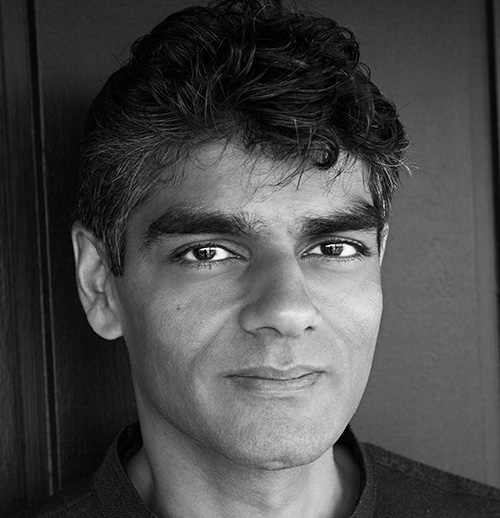
RAJ PATEL (Co-director) is a James Beard Award-winning activist and bestselling author. He has testified about food and hunger to multiple governments, and his book Stuffed and Starved has been translated into a dozen languages. He’s currently a research professor at the University of Texas, Austin.


